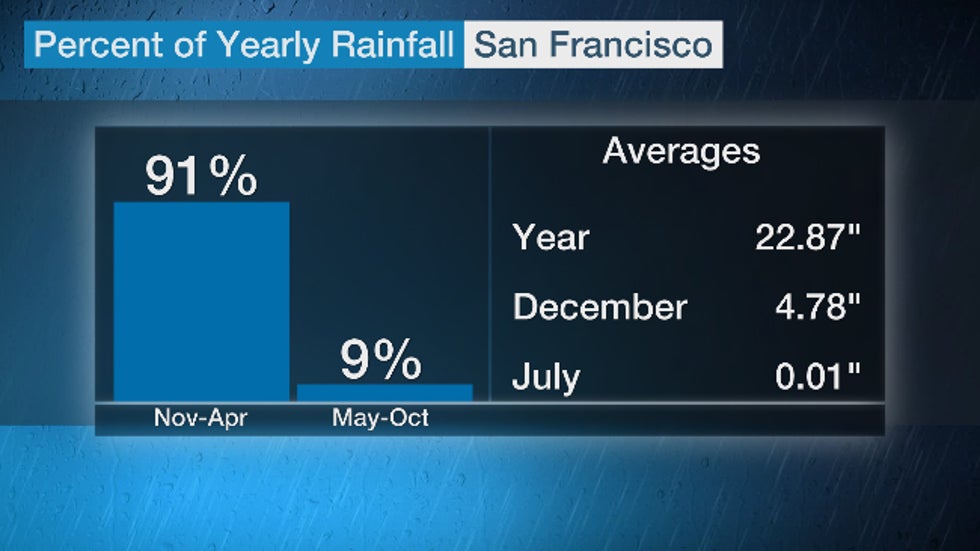Jonathan Erdman
California just had its driest rain year on record, and that's why the state drought has worsened so quickly.
The statewide average precipitation from July 2020 through June 2021 was 49 percent of average, the lowest on record for any July-June rainfall year in California, according to data compiled by Jan Null, a consultant meteorologist and founder of Golden Gate Weather Services.
That shattered a state record that stood for 97 years.
The Bay Area, Sacramento River Basin, Tulare Basin, and the state's deserts had their driest July-June. Downtown San Francisco had its third driest rainfall year in records dating to the Gold Rush. It rained only 8.96 inches, about 39% of average, in that 12-month span.
It's gotten to the point that some light accumulation from drizzle over the July Fourth holiday weekend moved the National Weather Service in Monterey, California, to tweet video of water running from a downspout and to clean its official rain gauge.
All kidding aside, the drought is a dire situation in California and much of the West.
And it hasn't just been one dry year.
The past two rain years, July 2019 through June 2021, were second only to 1975-77 as the driest two-year stretch on record in the state, according to Null.
The Bay Area is more than one full year behind in rainfall. Downtown San Francisco's two-year rainfall deficit through June 2021 is just over 25 inches.
Not surprisingly, the state went from only a small abnormally dry area in July 2019 to the most widespread, serious drought since the 2012-2016 drought. That mid-2010s drought was considered the worst in parts of the state in 450 years.
 Drought Monitor analyses on late June 2019, late June 2020, then July 6, 2021, illustrating the development of drought in the state after one of the driest two-year stretches on record in the state.
Drought Monitor analyses on late June 2019, late June 2020, then July 6, 2021, illustrating the development of drought in the state after one of the driest two-year stretches on record in the state.And now, it's California's dry season. It will be months before any widespread rain and mountain snow nourish the parched Golden State.

The combination of parched vegetation, occasional summer thunderstorms with little rainfall and Santa Ana winds in the fall will make this another volatile fire season in California.
(MORE: California's Wildfire Pace Ahead of Disastrous 2020)
And, as a recently published study noted, climate change is delaying the onset of California's rainy season deeper into fall, creating serious consequences on the severity of wildfires later in fall.
Next winter and spring are critical. If California has a third straight dry winter, the drought impacts could worsen substantially.
The Weather Company’s primary journalistic mission is to report on breaking weather news, the environment and the importance of science to our lives. This story does not necessarily represent the position of our parent company, IBM.
The Weather Company’s primary journalistic mission is to report on breaking weather news, the environment and the importance of science to our lives. This story does not necessarily represent the position of our parent company, IBM.

No comments:
Post a Comment